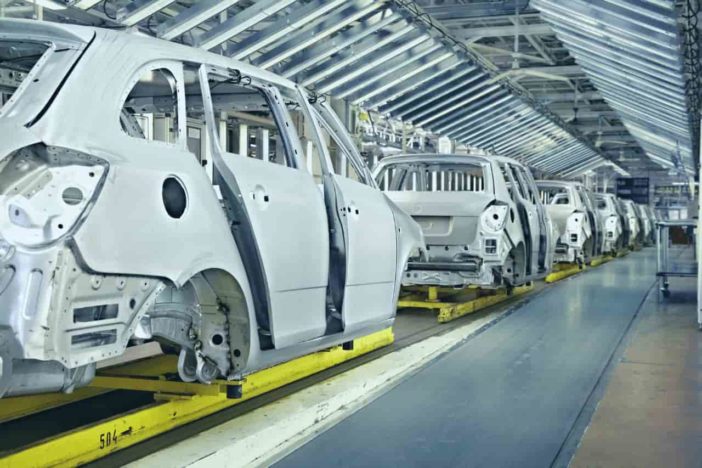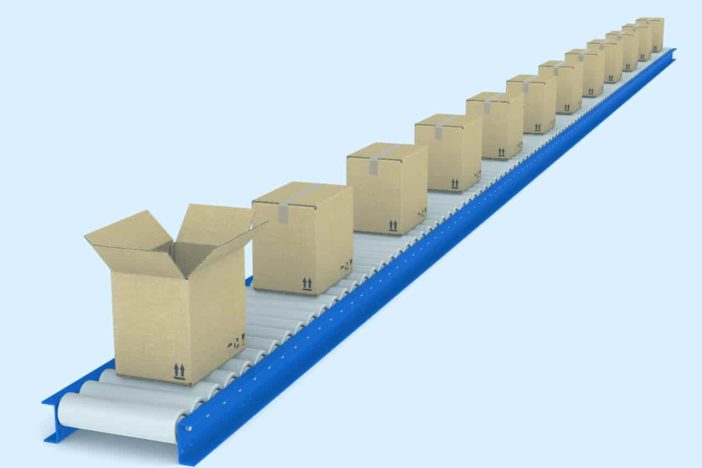Working in one of the many industries that rely on conveyor belts to move materials around? Then you’ll already be aware of just how vital this piece of equipment is. But did you know that it’s been used for industrial purposes for over a century? In fact, even the Romans were using conveyor belts by the first century AD.
But why are there so many industries that rely on conveyor belts? Well, since their invention over 100 years ago, they have been a crucial part of global manufacturing processes. From moving items from one factory to another to transporting materials and products between different areas within a single building or site, they are an essential piece of machinery.
When we think of a conveyor belt, we picture an assembly line in a factory. And that is the most common place to find them. However, conveyor belts are used in more industries than you might think.
Shipping Industry – Moving freight around the world
Shipping and logistics is one industry that heavily relies on a conveyor belt. These industries have to hassle with many products, and they have to make sure that those products get to their suitable destinations at the right time. Conveyor belts are also used to transport goods around factories and industrial sites and load and unload trucks at ports, airports, and railway sidings. These automated sorting systems help reduce the cost and increase the efficiency of the shipping industry. It helps in making the whole process more efficient and speedy. Due to the increasing demand for products worldwide, it has become essential for these industries to depend on advanced or automated sorting systems.
Shipping has been a hugely important part of global trade for years, yet it simply wouldn’t be possible without these belts. That’s why when a conveyor system of a shipping line is impaired, it needs to be fixed or replaced right away. Fluent conveyors company is reliable when it comes to conveyors; they are experts on how a conveyor belt works and how to choose a replacement.
Related: Why do Businesses Use Mainframe Computers? Definitions, Features, and Examples
Agricultural Industry
Agricultural Industry is reliant on the conveyor belt system for many reasons. The first reason is that they would not get their crops in and out of the barn if they did not have a conveyor belt system. There are many different types of crops and materials that need to be transported to and from the barn throughout the day.
Another reason why the Agricultural Industry relies on this system so much is that it makes it easier for them to transport items up above where they cannot reach them by hand. The items are lifted up with a forklift or some other machinery that can lift heavy things up high into the air. Conveyor belts are used to transport items from above back down to a ground-level so that workers can put them into their trucks or onto trailers and bring them back to their stores for consumers to purchase them.
Conveyor belts are used in the Agricultural industry for other reasons as well. Conveyor transport systems allow easy movement of harvested products from one place to another without any human interference or intervention. All raw materials must be delivered to specific destinations within a specific timeframe to avoid spoiling or rotting the products being transported.
Warehousing & Delivery
Conveyor belts are an essential part of modern warehousing and delivery systems. They play a vital role in efficiently managing inventory, stock, and palletized products.
Suppose you are in the industry of Warehousing & Delivery. In that case, you know how important it is for your business to properly load, move and unload your goods. Conveyor belts have been a staple in warehouses for as long as there have been warehouses, and they’re here to stay. The conveyor belt industry is a strong and growing market that’s intrinsically tied to many different industries, but the most notable is definitely Warehousing & Delivery.
The importance of conveyor belts extends beyond the warehousing field, too. Factories, food processing plants, and other industrial sites rely on them to efficiently move materials in their facilities. Warehouses and factories both need material-handling equipment that can transport loads with minimal effort. Conveyor belts are ideal for this role because they can handle heavy loads while also moving them quickly and easily.
Automotive Industry

It’s hard to imagine a world without conveyor belts. From the automobile industry to your local grocery store, they are used in almost every manufacturing and distribution type. Conveyors are part of the backbone of the automotive world, where they’re used to transport parts between stations along the assembly line.
Conveyor belts are an integral part of the automotive industry and appear at every stage of the production process. From moving parts from one location to another, handling delicate pieces with care, or even transporting cars from one location to another, conveyor belts play a vital role in the industry’s success.
Conveyor belts are needed for repetitive production. This allows for assembly line work and high-volume manufacturing. Almost every piece that goes into an automobile finds its way onto a conveyor belt at one point or another during the course of production. The idea is that this keeps tasks and jobs standardized and streamlined.
It’s very likely you’ve never had to think about how a car is made, but I bet you’ve thought about how long it takes to get your car serviced. While many steps are involved in getting your car back on the road, it starts with a trip down a conveyor belt to get prepped for service.
Food Industry
The food industry is one of the most remarkable places where the conveyor belt is used. It can be found in meat processing plants, sugar refineries, food packaging factories, etc.
One of the reasons the food industry uses conveyor belts is efficiency. When you use a conveyor belt for transporting food items, it would be much easier to control the temperature and speed of transportation. The conveyor system can be adjusted easily as well.
Takeaway
Conveyor belts are used in many industries, but their primary purpose is to increase the efficiency of a process. Companies that manufacture automobiles, for example, use conveyor belts to move parts from one area to the next to speed up the manufacturing process.
About the Author: Jeremy Axel is the founder of Fluent Conveyors, they design and manufacture conveyors for Waste and recycling industries, Manufacturing, and Distribution centers across the United States. He is also known for building trusted relationships with conveyor dealers and reseller networks and developing advanced technological processes and tools that help them do their jobs more efficiently.



